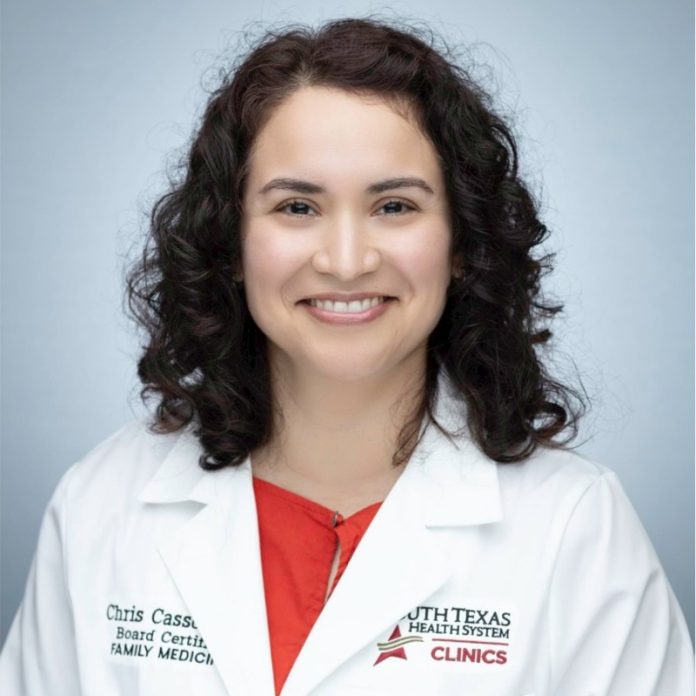Get the Facts About Hypertension and the Effect It Can Have on Your Good Health
Chris Casso, MD, is a board-certified family medicine physician with South Texas Health System® Clinics who provides a wide range of services to help keep patients and their families healthy. High blood pressure, or hypertension, is one of the many conditions she helps diagnose and treat. Below, Dr. Casso answers some common questions about high blood pressure, including what causes it, how it is treated, and what you can do to help prevent this all-too-common condition.
Q. What is high blood pressure?
A: High blood pressure, also known as hypertension, occurs when the force of blood against the walls of your arteries is consistently too high. Your blood pressure goes up when your heart has to work harder than normal to move blood through the body’s arteries and veins. If enough blood doesn’t get to the organs, damage can occur.
Blood pressure is measured in millimeters of mercury (mm Hg) and is shown as two numbers: systolic pressure (the top number) and diastolic pressure (the bottom number).
Several years ago, the American Heart Association® and the American College of Cardiology® lowered the threshold for high blood pressure, generally defining it as 130/80 mm Hg or higher. This means that more Americans are now considered hypertensive. The new guidelines emphasize earlier treatment to help prevent related health problems. Knowing your numbers is vital for the health of your heart, brain, kidneys and vascular system.
Q. What causes high blood pressure?
A: While there is no single cause of high blood pressure, common risk factors include:
• Age: As you get older, your blood vessels become less flexible, which can increase blood pressure.
• Genetics: High blood pressure can run in families.
• Obesity: Being overweight can put additional pressure on your heart and blood vessels.
• Sedentary lifestyle: Lack of physical activity can contribute to high blood pressure.
• Diet: A diet high in salt, saturated fat and cholesterol can increase blood pressure.
• Chronic conditions: Conditions such as diabetes, kidney disease and sleep apnea can contribute to high blood pressure.
Q. What are the risks of high blood pressure?
According to the Centers for Disease Control and Prevention, nearly half of all U.S. adults have high blood pressure and only about one out of every four people have their hypertension under control. Unfortunately, high blood pressure is a major (and often preventable!) risk factor for heart disease and stroke, which are leading causes of death in the U.S. High blood pressure can also put you at risk for kidney disease, vision loss and more. Unfortunately, hypertension usually has no symptoms, so it’s important to have regular checkups so your blood pressure can be measured.
Q. How can high blood pressure be treated?
A: Treatment typically involves lifestyle changes and, if necessary, medication. Lifestyle changes that can help lower blood pressure include:
• Maintaining a healthy weight
• Exercising regularly
• Eating a diet that is low in salt, saturated fat, and cholesterol
• Limiting alcohol
• Quitting smoking
• Managing stress
Some cases of high blood pressure are treated with medication, so visiting your doctor is the first step if your blood pressure is above normal.
Dr. Casso earned her medical degree from The University of Texas Medical Branch at Galveston and completed her training at The Corpus Christi Family Practice Residency Program, also in Texas.
Chris Casso, MD
7900 N. 10th Street | Suite A | McAllen, TX 78504
TO MAKE AN APPOINTMENT: Schedule online at sthsclinics.com or call 956-603-1515
Virtual Visits Available | Walk-ins Welcome
Tuesday through Friday, 7 a.m. – 6 p.m.
Accepts Medicare, Medicaid and most medical insurance plans
[STHS Clinics logo]
For language assistance, disability accommodations and the nondiscrimination notice, visit our website.




